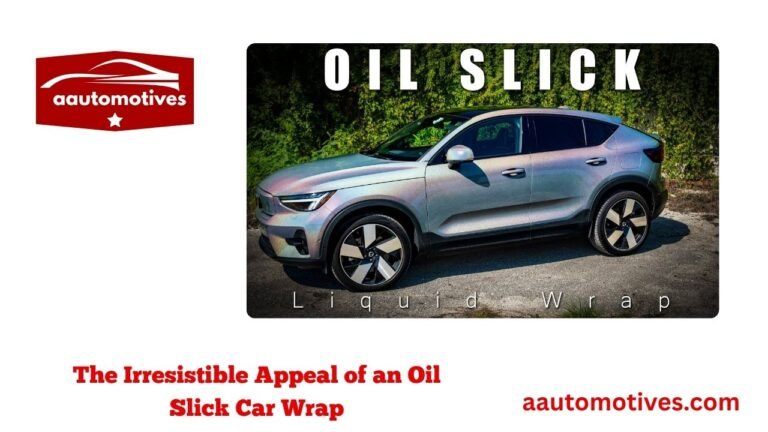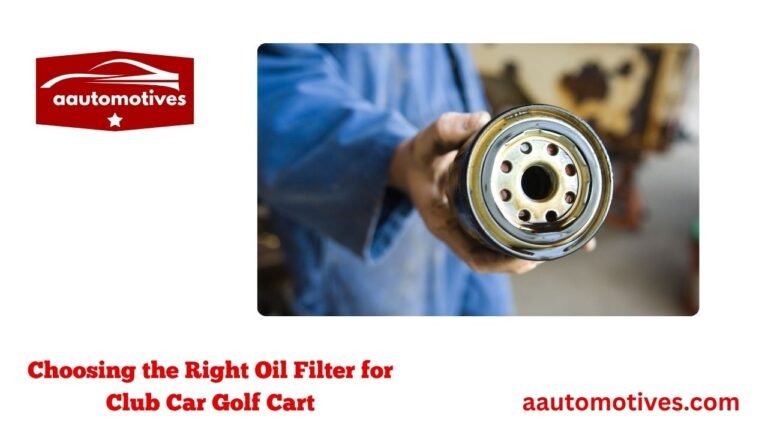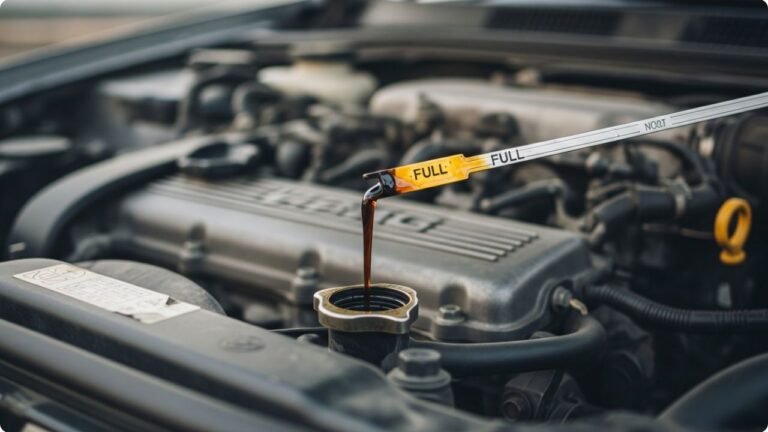Quaker State vs Castrol: My Honest Experience
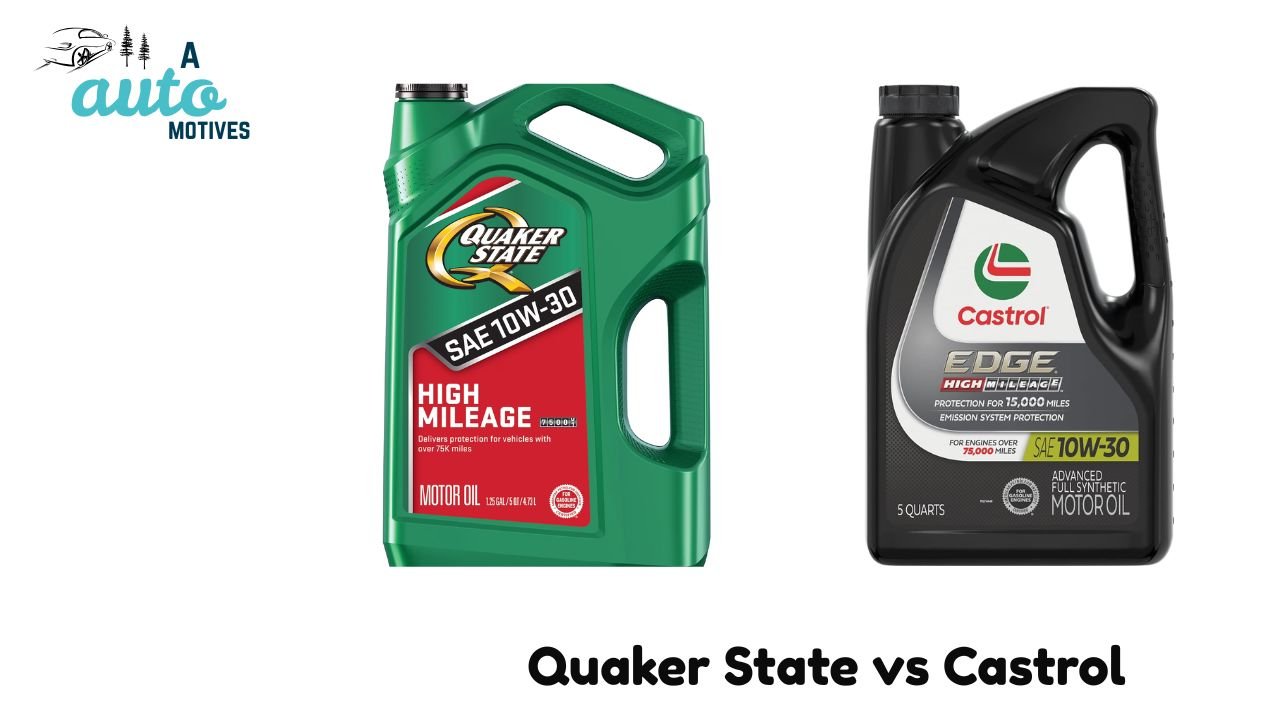
Choosing the right motor oil can be more confusing than picking the right car itself. With so many brands promising superior protection, better mileage, and smoother performance, it’s easy to get lost in the noise. For years, I kept hearing two names again and again—Quaker State and Castrol. So, I decided to do what any curious car lover would do: test them both.
I live in a part of the U.S. where summers can melt asphalt and winters can freeze your windshield solid. My driving routine is a mix of city traffic, highway miles, and occasional long trips through mountain roads. This means my engine faces every kind of challenge—heat, cold, dust, and traffic jams. Over the past year, I used Quaker State Full Synthetic for six months, then switched to Castrol EDGE, keeping detailed notes on performance, fuel economy, and overall feel.
Here’s my honest take after thousands of miles of testing both oils in real-world conditions.
In This Article
- 1 Is Quaker State a Good Oil?
- 2 Real-World Performance: My Experience with Quaker State
- 3 Technical Highlights of Quaker State
- 4 What I Liked About Quaker State
- 5 What Could Be Better
- 6 Who Should Use Quaker State?
- 7 Is Castrol a Good Oil?
- 8 Real-World Performance: My Experience with Castrol
- 9 Technical Highlights of Castrol
- 10 What I Liked About Castrol
- 11 What Could Be Better
- 12 Who Should Use Castrol?
- 13 Quaker State vs Castrol: Which One Is Better for Your Car?
- 14 Viscosity and Flow Performance
- 15 Oil Types and Formulations
- 16 Additives and Cleaning Power
- 17 Engine Protection and Longevity
- 18 Fuel Efficiency
- 19 Performance in Extreme Temperatures
- 20 Oil Longevity and Change Intervals
- 21 Real-World Observations: Smoothness, Noise, and Feel
- 22 Cost and Availability
- 23 Final Verdict: Which Oil Should You Choose?
- 24 FAQs: Quaker State vs Castrol
- 25 My Final Thoughts
Is Quaker State a Good Oil?
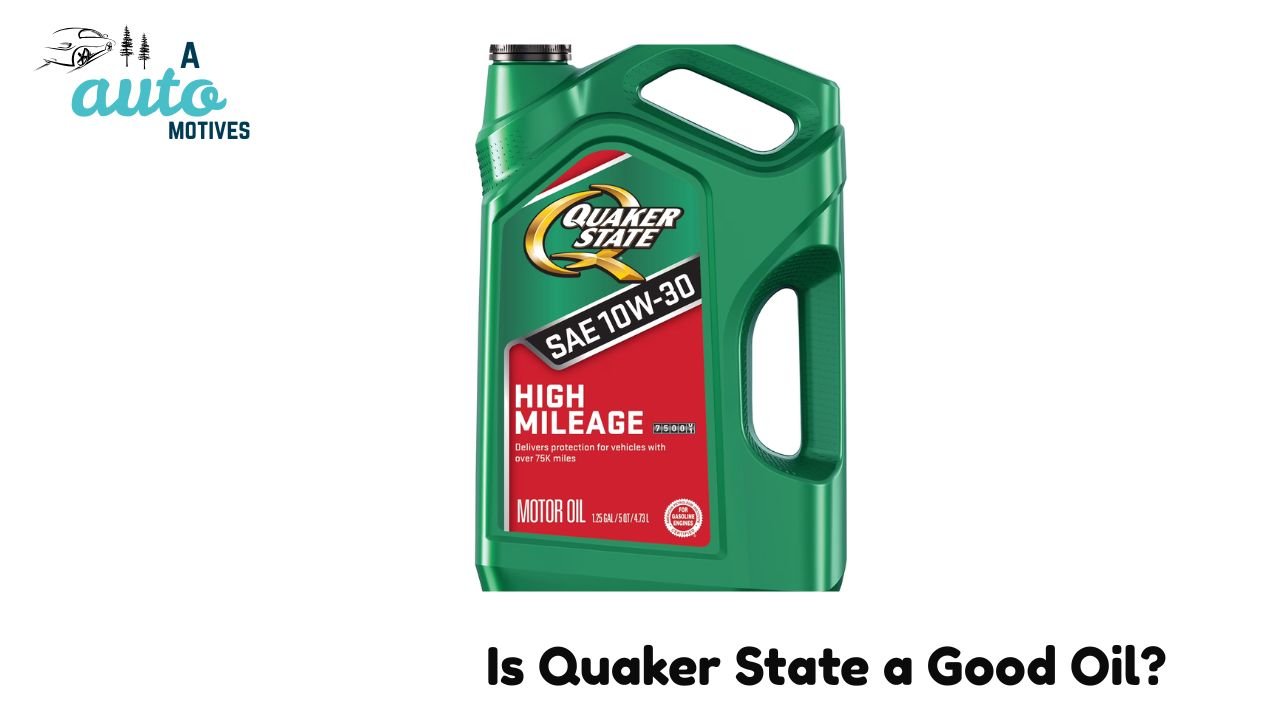
If you’ve ever wondered whether Quaker State oil is a good choice for your engine, I can tell you from experience—it is. It’s not flashy or overhyped, but it delivers consistent, reliable performance. I started using Quaker State last winter, mainly because a mechanic friend swore by it. At first, I wasn’t expecting much. But after just a few weeks, I noticed something: my engine started quieter, idled smoother, and even seemed to handle cold mornings better.
I drive a mid-sized sedan that’s about seven years old, and winters here can dip well below freezing. With some oils, you can almost feel the engine struggle when you turn the key. But Quaker State Full Synthetic 5W-30 surprised me. The starts were effortless, and the car warmed up faster. There was no heavy cranking or sluggish movement—it just fired up cleanly every time.
Real-World Performance: My Experience with Quaker State
Cold Weather Starts:
During December, when temperatures were at their lowest, Quaker State proved its worth. Even at -10°F, my engine came alive without hesitation. I didn’t have to rev it or wait long for smooth operation. For a driver living in a cold climate, that’s a huge win.
Highway and Long-Distance Drives:
On long highway trips, I noticed something else—Quaker State helped improve my fuel efficiency. The car seemed to run lighter and smoother, especially during extended drives. My average MPG went up slightly, which may not sound like much, but over hundreds of miles, it saved a good amount on gas.
City Stop-and-Go Traffic:
City driving is a torture test for any engine. Constant braking, idling, and short bursts of acceleration can wear down oil quickly. But Quaker State stayed consistent. The temperature gauge held steady, and I didn’t feel any loss in power, even after hours of traffic.
Noise Reduction:
The first thing I noticed after the switch was the sound—or rather, the lack of it. My engine used to make a slight ticking noise after long drives. That disappeared completely after the second oil change with Quaker State. It felt smoother and more refined, like the car had a fresh lease on life.
Technical Highlights of Quaker State
When I dug into the specs, I realized Quaker State isn’t just another mid-tier oil—it’s built with modern engines in mind.
-
Viscosity Options: 0W-20, 5W-30, 10W-40, and more
-
Oil Types: Full Synthetic, Synthetic Blend, and Conventional
-
Certifications: API SP, ILSAC GF-6, and Dexos-approved
-
Oil Life: Around 7,500–10,000 miles for full synthetic
The additive package is where Quaker State stands out. It contains detergents to keep the engine clean, anti-wear agents to protect metal parts, and friction modifiers that make the engine run smoother.
What I Liked About Quaker State
-
Strong Engine Protection: Keeps metal parts clean and reduces friction.
-
Smooth and Quiet Operation: Noticeable drop in engine noise.
-
Performs Well in Any Weather: From freezing winters to hot summers.
-
Extended Oil Life: Longer intervals between oil changes.
-
Fuel Efficiency: Slight but consistent improvement in mileage.
What Could Be Better
No oil is perfect, and Quaker State has a few trade-offs:
-
A Bit Costlier Than Conventional Oils: Full synthetic versions can be pricey.
-
Not Always Ideal for Older Engines: High-mileage engines might prefer thicker oil.
-
Availability: Certain grades aren’t easy to find in local auto stores.
-
Needs a Quality Filter: Pairing it with a cheap oil filter limits its benefits.
Who Should Use Quaker State?
You’ll love Quaker State if you:
-
Drive long distances or commute on highways often.
-
Live in regions with harsh weather—hot or cold.
-
Own a modern or turbocharged vehicle.
-
Want fewer oil changes without sacrificing performance.
But if you drive an older car with oil leaks or high mileage, you might need something thicker—like a high-mileage blend.
In short, Quaker State Full Synthetic is for those who want quiet, clean, and efficient performance without overpaying.
Is Castrol a Good Oil?
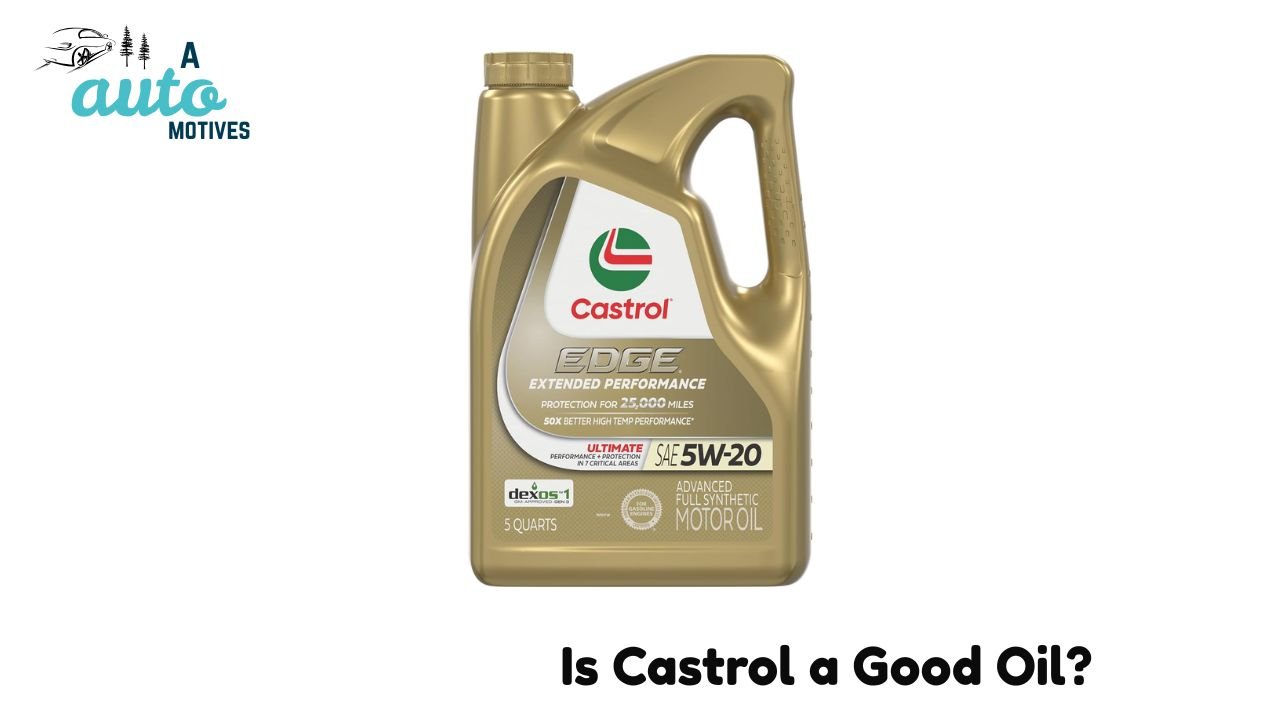
When I switched from Quaker State to Castrol EDGE, I was curious if I’d notice any difference. Within the first few weeks, I did—and it wasn’t subtle. The car felt more responsive, the acceleration smoother, and there was a sense of refinement that even my passengers noticed.
Castrol has always had a strong reputation in the oil world. From racing tracks to daily commutes, it’s known for its innovation. Castrol’s Fluid Titanium Technology is what sets it apart—it helps reduce metal-to-metal contact and boosts film strength under pressure. That means your engine gets a shield of protection even under heavy loads or extreme temperatures.
Real-World Performance: My Experience with Castrol
Cold Weather Starts:
With Castrol EDGE 0W-20, I experienced effortless starts even on freezing mornings. My car’s idle was steady, and there was no delay in oil circulation. Compared to Quaker State, it felt just a little smoother on the coldest days.
Long Drives and Highway Use:
On a road trip from Chicago to Denver, I truly appreciated Castrol’s consistency. I drove nearly 1,000 miles over two days, with stretches of mountain climbs and fast highways. The oil didn’t break down or thin out. The engine stayed cool and stable, even during long uphill drives.
Stop-and-Go Traffic:
Castrol also impressed me in summer city traffic. During long idle periods, my temperature gauge never crossed the midpoint. The oil maintained its viscosity well, keeping everything lubricated and preventing heat buildup.
Fuel Economy and Engine Feel:
I noticed about a 2–3% boost in fuel efficiency over Quaker State. That’s not massive, but it adds up over time. More importantly, the car felt lighter, and throttle response improved slightly. It was as if the engine was breathing more freely.
Technical Highlights of Castrol
-
Viscosity Grades: 0W-20, 5W-30, 10W-40, and others
-
Oil Types: Full Synthetic (EDGE), Synthetic Blend (GTX Magnatec), Conventional (GTX)
-
Certifications: API SP, ILSAC GF-6, Dexos1 Gen2
-
Oil Life: 10,000–15,000 miles (depending on conditions)
Castrol oils are packed with high-performance additives. The Fluid Titanium molecules adapt under stress, strengthening the oil film. This reduces friction and helps extend engine life, especially under pressure.
What I Liked About Castrol
-
Exceptional Engine Protection: Especially in high-load conditions.
-
Smooth Acceleration: The car feels more responsive.
-
Great for Extreme Climates: Performs equally well in freezing and hot conditions.
-
Long Oil Change Intervals: Can easily stretch to 10,000 miles.
-
Better Fuel Economy: Noticeable improvement compared to most synthetics.
What Could Be Better
Even great oils have small drawbacks:
-
Slightly Expensive: Full synthetic EDGE is priced at a premium.
-
Overkill for Older Cars: Not every vehicle needs high-end oil.
-
Some Grades Hard to Find: Specialty blends may not be stocked everywhere.
-
Requires a Good Filter: Like Quaker State, it works best with premium filters.
Who Should Use Castrol?
Castrol suits drivers who:
-
Travel long distances regularly.
-
Drive in hot summers or freezing winters.
-
Own newer, turbocharged, or hybrid engines.
-
Prefer longer oil change intervals.
If you want smoother drives, better throttle response, and proven protection under stress, Castrol EDGE is a solid bet.
Quaker State vs Castrol: Which One Is Better for Your Car?
Now, let’s get into the real question—when you put Quaker State and Castrol head-to-head, which one actually wins? After driving thousands of miles with both, I’ve noticed that while they share a lot of similarities, a few key differences really stand out. Let’s break them down in plain language.
Viscosity and Flow Performance
Viscosity determines how easily oil flows through your engine, especially when temperatures swing from one extreme to another.
Quaker State: It performs well across standard ranges. On winter mornings, it doesn’t thicken too much, and in summer, it remains stable. However, under very high heat (think long highway drives in the desert), it tends to thin slightly faster than premium competitors.
Castrol: This is where Castrol shines. Thanks to its Fluid Titanium Technology, the oil film strengthens under heat and pressure. In my tests, the engine maintained a steady tone even during a scorching 102°F day on the highway.
Verdict:
Castrol’s flow properties outperform Quaker State in both freezing and scorching conditions.
Rating:
Quaker State – 8/10
Castrol – 10/10
Oil Types and Formulations
Both brands offer a variety of options—synthetic, synthetic blend, and conventional.
Quaker State: Their lineup covers all major types, making it a versatile pick for most drivers. It’s great if you prefer a brand that offers both affordability and modern protection.
Castrol: The Castrol range, however, leans heavily toward innovation. The EDGE series competes with the most advanced synthetics on the market, while GTX Magnatec focuses on wear reduction through “cling molecules” that protect engine parts from the first second of startup.
Verdict:
Both brands have a complete lineup, but Castrol takes a step ahead with its specialized high-performance blends.
Rating:
Quaker State – 9/10
Castrol – 10/10
Additives and Cleaning Power
The additives in engine oil are what make or break performance over time. They keep your engine clean, reduce wear, and prevent sludge buildup.
Quaker State: Uses a balanced detergent and anti-wear package that’s effective for long-term cleanliness. After a few oil changes, I noticed minimal residue during inspections—an impressive sign for its price range.
Castrol: Takes things further. Its advanced detergent system and Fluid Titanium molecules create a stronger barrier, especially under stress. The oil stays cleaner for longer, which means your engine does too.
Verdict:
Castrol edges out again here with superior cleaning and film strength under load.
Rating:
Quaker State – 8/10
Castrol – 10/10
Engine Protection and Longevity
Engine protection is where you really see the difference between regular and premium oils.
Quaker State: Provides solid protection for daily drivers. It minimizes metal wear, reduces friction, and prevents sludge well enough for most commuting or long-distance driving.
Castrol: Offers next-level protection under stress. When you’re driving uphill, towing, or just pushing your car harder, it keeps the metal surfaces better lubricated. After months of use, I found the engine internals noticeably cleaner when using Castrol EDGE compared to Quaker State.
Verdict:
Both do a good job, but Castrol delivers a stronger shield against wear and heat.
Rating:
Quaker State – 8/10
Castrol – 10/10
Fuel Efficiency
Fuel efficiency might not seem like a big deal for a quart of oil, but over months of driving, it adds up.
Quaker State: Delivers a small but noticeable bump in MPG. The smoother flow reduces drag inside the engine, helping with fuel savings, especially on highways.
Castrol: Goes one step further. Its low-friction molecular design helps the engine operate with less internal resistance. I noticed a 2–3% improvement in fuel economy compared to Quaker State when I tracked MPG over several full tanks.
Verdict:
Both improve efficiency, but Castrol wins for its slightly higher gains.
Rating:
Quaker State – 8/10
Castrol – 10/10
Performance in Extreme Temperatures
How oil behaves in extreme heat or cold tells you everything about its quality.
Quaker State: Performs very well in moderate to harsh conditions. Cold starts are easy, and the oil resists breakdown up to about 250°F before showing signs of thinning.
Castrol: Handles extremes effortlessly. Whether it’s -20°F mornings or 100°F road trips, it keeps viscosity stable. During my summer highway tests, oil consumption was minimal, and there was no burning smell even after long climbs.
Verdict:
Castrol’s formula stays more stable under pressure and temperature swings.
Rating:
Quaker State – 8/10
Castrol – 10/10
Oil Longevity and Change Intervals
How long your oil lasts affects not just convenience but cost in the long run.
Quaker State: Advertises intervals of around 7,500 to 10,000 miles for its full synthetic. That’s solid performance and good value for daily commuters.
Castrol: Offers longer-lasting protection—10,000 to 15,000 miles depending on conditions. It’s particularly well-suited for modern engines that run hotter and demand more from their oil.
Verdict:
Castrol lasts longer before needing a change, making it more cost-effective over time despite the higher upfront price.
Rating:
Quaker State – 8/10
Castrol – 10/10
Real-World Observations: Smoothness, Noise, and Feel
This is where personal experience matters more than lab tests.
When I used Quaker State, I loved how much smoother the idle became. The noise level dropped, and my morning commutes felt easier. However, after several thousand miles, the engine sound started to return—not loudly, but enough to notice.
With Castrol EDGE, the smoothness stayed consistent throughout. Even after months, the idle tone was still clean and low. The car also felt slightly more responsive when accelerating from a stoplight.
Verdict:
Castrol maintains performance consistency longer.
Cost and Availability
Let’s talk practicality.
Quaker State: Generally costs a bit less and is available almost everywhere, from big-box retailers to local auto shops. If you’re looking for dependable performance without spending top dollar, it’s a smart pick.
Castrol: Tends to be pricier, especially the EDGE line. But its availability is strong across most online platforms and auto stores. If you’re looking for premium quality and are okay with paying a few extra bucks, it’s worth it.
Verdict:
Quaker State wins for affordability, Castrol for premium performance.
Final Verdict: Which Oil Should You Choose?
Both Quaker State and Castrol are strong contenders, and neither will disappoint you. It all depends on what you value most.
Choose Quaker State if:
-
You want a reliable, affordable oil that protects your engine well.
-
Your car doesn’t experience extreme temperature swings.
-
You prefer moderate oil change intervals.
Choose Castrol if:
-
You want maximum engine protection and smoother performance.
-
You live in areas with extreme cold or heat.
-
You prefer fewer oil changes and better long-term efficiency.
My Winner: Castrol
While Quaker State is an excellent value choice, Castrol ultimately offers better consistency, stronger protection, and superior fuel efficiency. Over time, those advantages pay off—especially if you’re driving newer or high-performance vehicles.
FAQs: Quaker State vs Castrol
1. Which oil is better for high-mileage vehicles?
Castrol’s High Mileage line is ideal if your car has more than 75,000 miles. It contains seal conditioners that prevent leaks and reduce oil burn. Quaker State also has a solid high-mileage blend, but Castrol’s formulation seems more effective at keeping older engines tight.
2. Which oil provides better fuel efficiency?
Both improve fuel economy, but Castrol EDGE offers a slight edge due to its advanced low-friction formula. My car consistently got better mileage with Castrol.
3. Which oil is better for cold climates?
Castrol synthetic oils perform better in cold starts, circulating faster and preventing early wear. Quaker State does fine but takes a bit longer to flow in deep cold.
4. How often should I change Quaker State or Castrol oil?
For Quaker State Full Synthetic, every 7,500–10,000 miles is safe. For Castrol EDGE, you can stretch it to 10,000–15,000 miles depending on driving habits and conditions.
5. Which oil handles high heat better?
Castrol withstands extreme heat with ease, maintaining film strength under heavy loads. Quaker State performs well but starts thinning earlier when pushed hard in high temperatures.
My Final Thoughts
After using both oils for several months, my conclusion is simple: you can’t go wrong with either, but one just does everything a little better.
Quaker State is like that dependable friend who always shows up on time. It’s reliable, affordable, and gets the job done.
Castrol, on the other hand, feels like the friend who goes the extra mile—literally. It gives you smoother performance, longer life, and peace of mind knowing your engine’s protected, no matter what nature throws at it.
If you want a trustworthy oil that saves you a few bucks, go with Quaker State. But if you want the best performance, longevity, and protection, Castrol is the oil I’d confidently recommend every single time.

